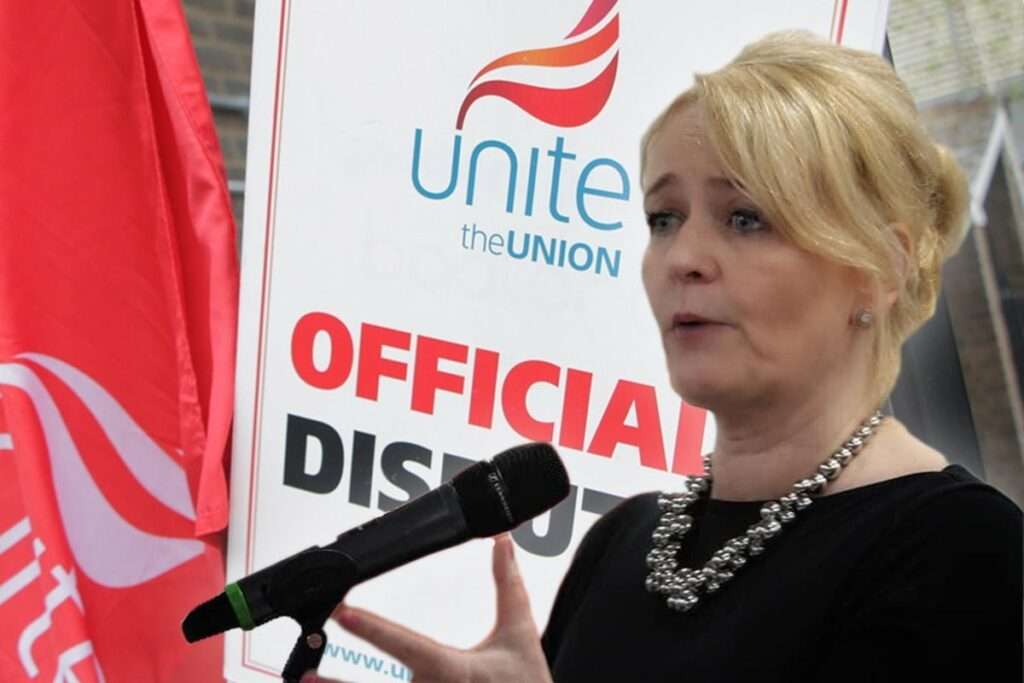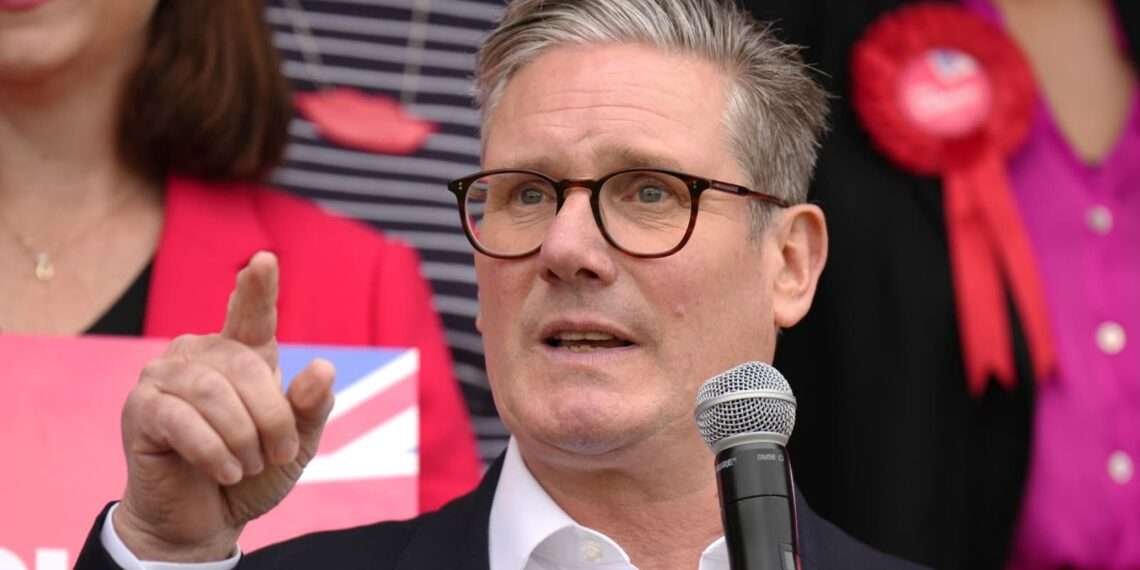In just two days into the new Labour government, Sharon Graham, the general secretary of the Unite union, has strongly challenged Keir Starmer and his administration regarding their economic policies.
Graham urges Labour to adopt a more aggressive investment strategy and implement a protectionist stance on British steel usage in public sector projects.
Graham made it clear that the new government would not be granted any leniency. “There will be no honeymoon period,” she declared, setting a combative tone for future interactions between the union and the Labour leadership.
The timing of this confrontation is critical, as it coincides with pressing concerns over the future of Tata Steel’s Port Talbot plant. Business Secretary Jonathan Reynolds addressed the looming threat of closure for the plant, which puts 2,800 jobs at risk.
Graham emphasized her primary focus on job security and workers’ rights.
“I am glad we have a Labour government [but] I am the leader of a trade union, and my main focus is jobs, pay, and conditions for workers. So I am either going to be seen as a critical friend or a pain in the proverbial.”
This tough stance is not new. Unite, under Graham’s leadership, had previously withheld support for Labour’s manifesto, citing insufficient commitments to workers’ rights and job protection. “It’s my job to make sure we have feet to the fire on this,” she affirmed.
Graham also expressed skepticism about the Labour government’s investment promises, warning that the “devil will be in the detail.”

She pointed out that past discussions of investment often lacked concrete job guarantees.
In a direct critique of new Chancellor Rachel Reeves’s fiscal policies, Graham argued that Labour must abandon its strict budgetary constraints to foster industrial growth.
“We will have to borrow to invest in British industry; that is going to have to happen,” she insisted.
While Starmer and Reeves have emphasized the need for economic growth before significant investments can be made, Graham contended that waiting is not a viable option.
She cited historical precedent, noting that fiscal rules have been revised multiple times since 1997. “We are going to have to borrow to invest; we cannot wait for growth,” she said.
Unite advocates for the UK to increase its borrowing capacity to match that of the US, which stands at 127 percent of GDP, compared to the UK’s 99 percent.
Former Tory leader Michael Howard, however, cautioned that such a move could trigger inflation, noting that the US can sustain higher borrowing due to the dollar’s status as a reserve currency.
Job Guarantees On The ‘Radar’
Business Secretary Jonathan Reynolds addressed the situation at Port Talbot, indicating that job guarantees would be a crucial part of the negotiations with Tata Steel.
The company has already closed one of its two blast furnaces at the plant and plans to shut down the second in September as it transitions to greener production methods.
“There is a better deal available for Port Talbot and the steel industry as a whole,” said Reynolds.
He emphasized the importance of securing commitments from the private sector in exchange for government co-investment.
“I do want things in exchange for money we’ll co-invest with the private sector around jobs and technology,” he explained.

“I think that’s a reasonable way to make sure public money is being well spent.”
Reynolds assured that job guarantees would be a non-negotiable aspect of the talks. “I’m going to make sure that job guarantees are part of the negotiation that we’re having,” he said.
As such, the call for immediate and substantial investment in British industry highlights the pressing need for a balanced approach to economic growth and fiscal responsibility.
READ ALSO: Haruna Iddrisu Calls on Politicians to Address Basic Needs of Ghanaians



















